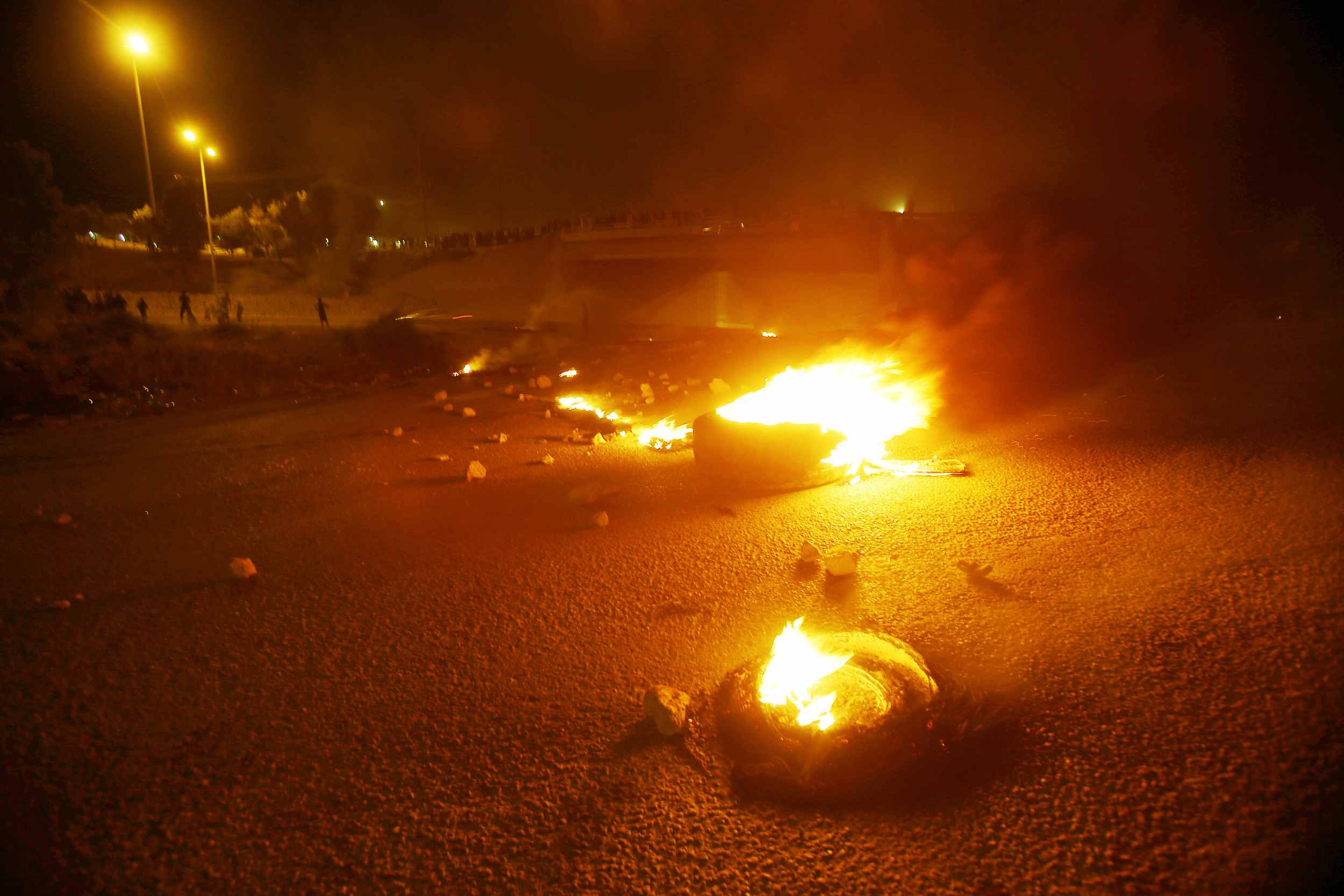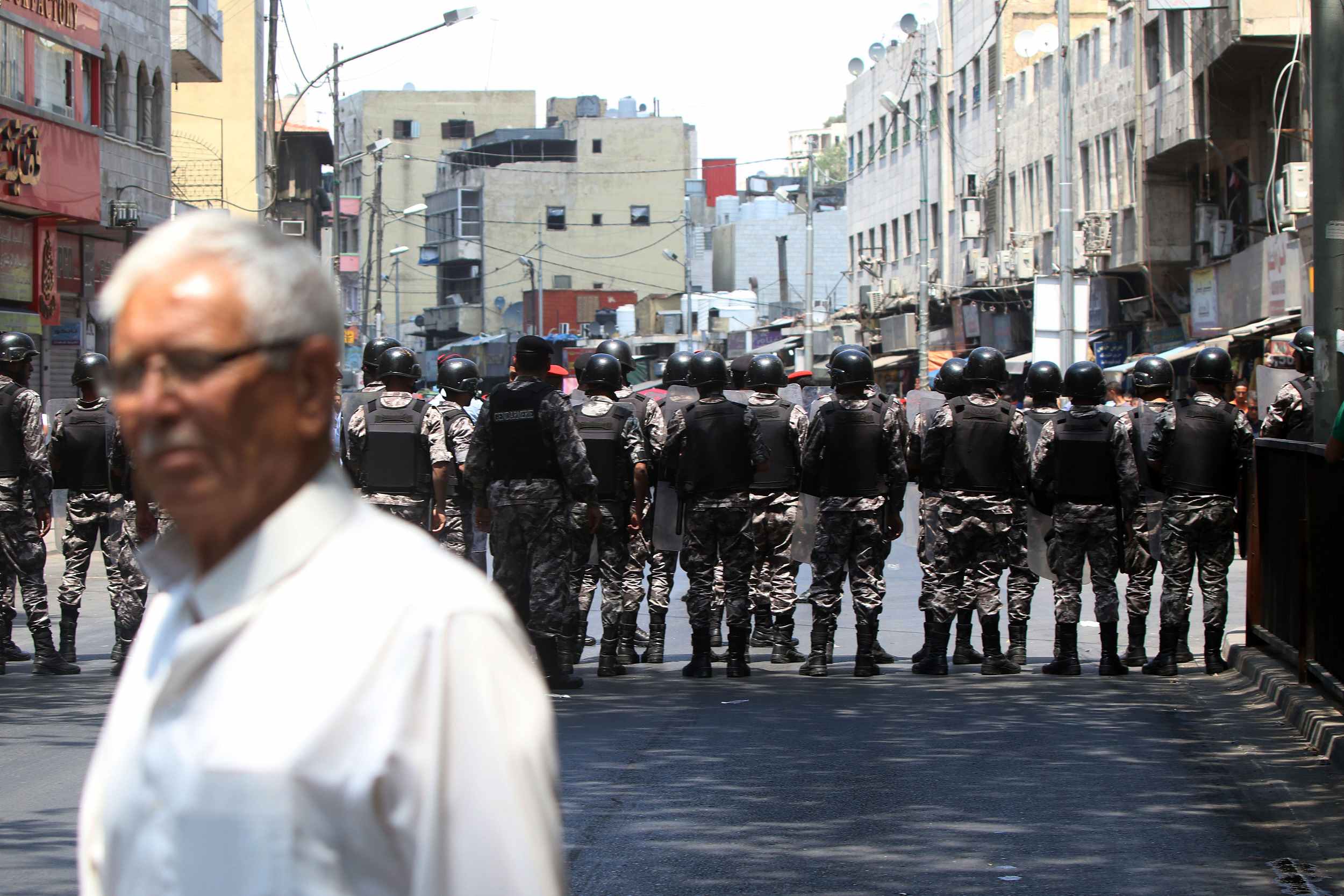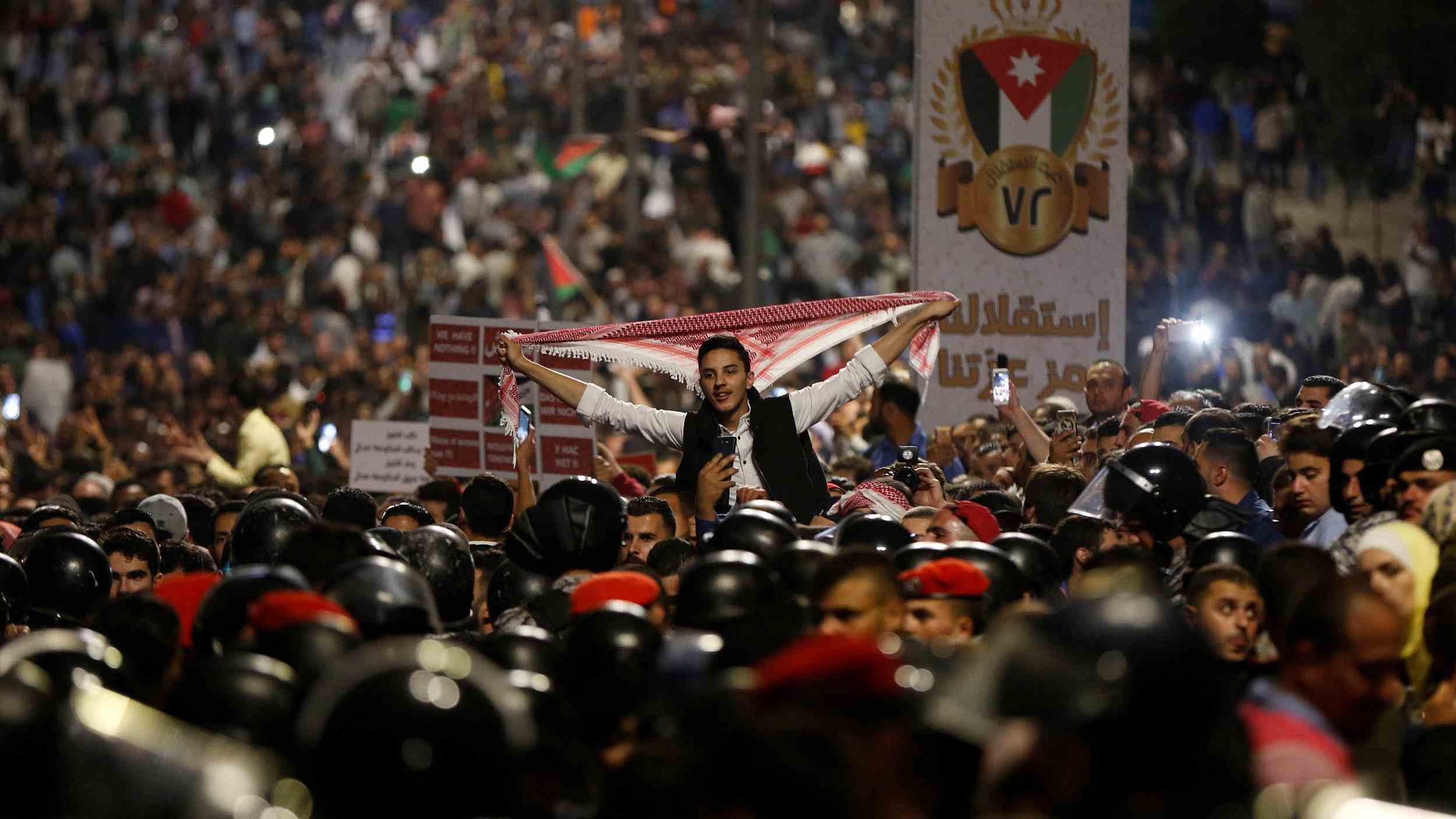CGTN
Jordan’s Prime Minister Hani Mulki resigned on Monday after mass protests and dozens of arrests in the country.
Hundreds of Jordanians took to the streets of the capital Amman on Sunday, extending days of protests that have shaken Jordan.
Public anger has grown over government policies since a steep general sales tax hike earlier this year and the abolition of bread subsidies, both measures driven by the International Monetary Fund.

Witnesses said demonstrators who converged near the cabinet office chanted slogans calling for the sacking of Prime Minister Hani Mulki and saying they would disband only if the government rescinded a tax bill it sent to parliament last month which critics say worsens living standards.
“We are here until we bring the downfall of the bill ... This government is shameful,” demonstrators chanted as police prevented them from approaching the heavily guarded government offices.
Mulki refused on Saturday to scrap the tax reform bill backed by the International Monetary Fund that has provoked the largest protests in over five years against steep price rises, saying it was up to parliament to decide its fate.

Jordanian youth burn tires and close a highway that links Amman with northern Jordan with rocks as they protest against an income tax law in Mastaba village, Jordan, June 1, 2018. /VCG Photo
In 2012 Jordan was rocked by several days of civil unrest also against the backdrop of tough IMF-imposed austerity measures that included lifting of fuel subsidies.
Unions representing tens of thousands of employees in both the public and private sector have also called for a general strike on Wednesday after their demands for the bill to be scrapped were rejected by the government.
Public anger over IMF-driven government policies has grown since a steep general sales tax hike earlier this year and the abolition of bread subsidies, a staple item for the poor.

A member of the Jordanian security forces receives treatment after being injured during a protest in the capital Amman, June 3, 2018. /VCG Photo
The tax hikes are aimed at bringing down public debt to 77 percent of GDP in 2021.
The government says it needs more funds for public services and argues that tax reforms reduce social disparities by placing a heavier burden on high earners and leaving lower-paid state workers relatively unscathed.
Jordan’s economy, which has been hit by regional turmoil, has struggled to grow in the last few years under chronic deficits as private foreign capital and aid flows have slipped.

Anti-riot police take places in a downtown street in Amman after the Friday prayers as protests hit Jordan refusing an income tax law on June 1, 2018 in Amman, Jordan. /VCG Photo
Critics say the measures will hurt the poor and protesters have slammed politicians for squandering public funds and corruption.
“Our demands are legitimate. No, no to corruption,” chanted the demonstrators urging King Abdullah, who is seen as a unifying force, to intervene and crack down on official graft.
Source(s): Reuters
Place Your Adverts Here. Call 08168603984 For Your Booking.

No comments:
Post a Comment